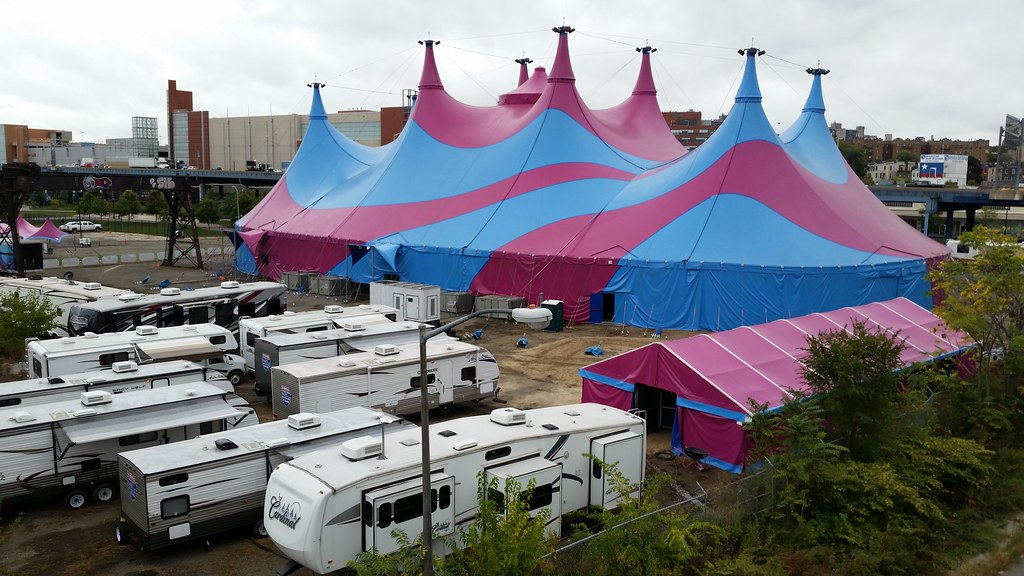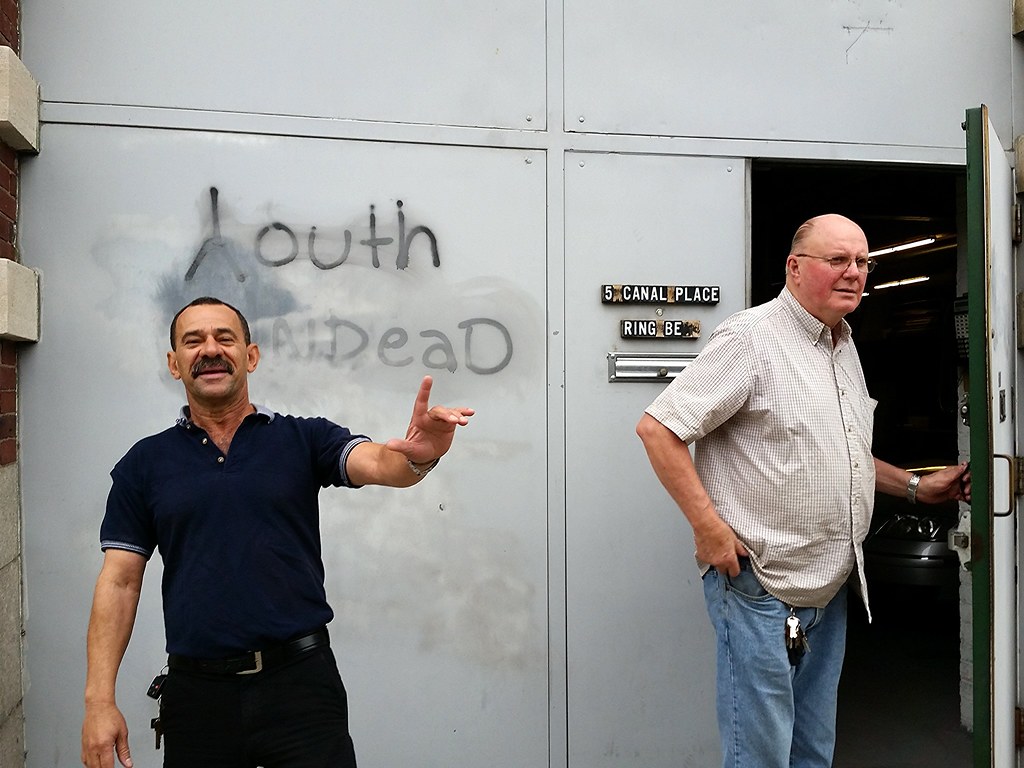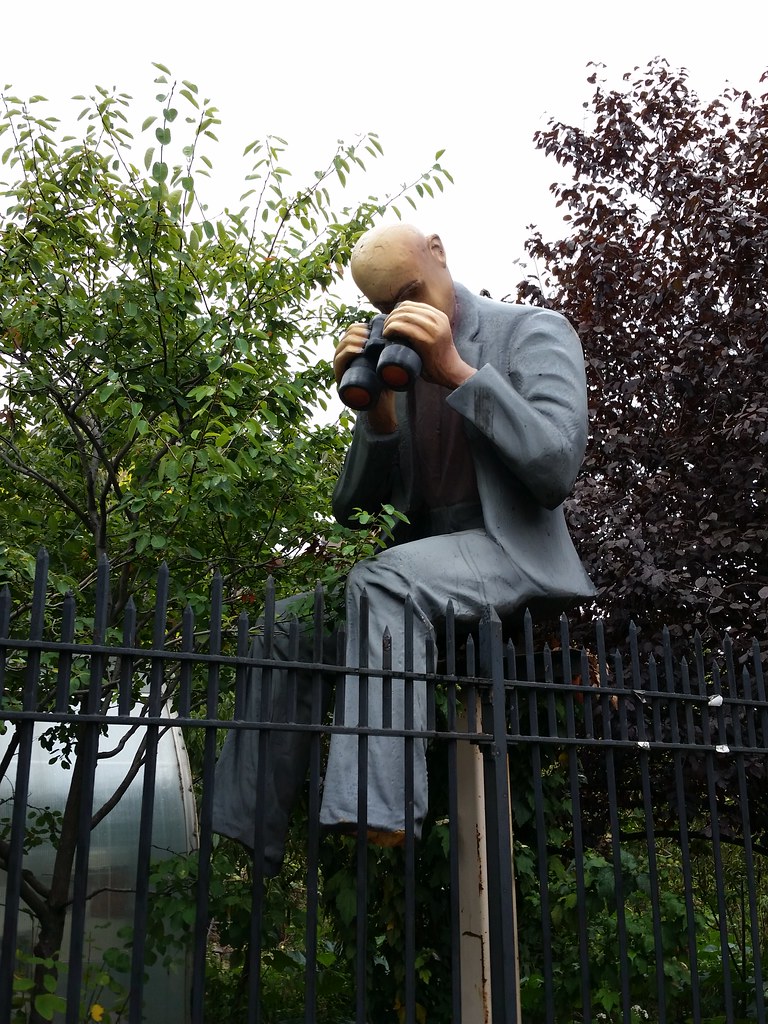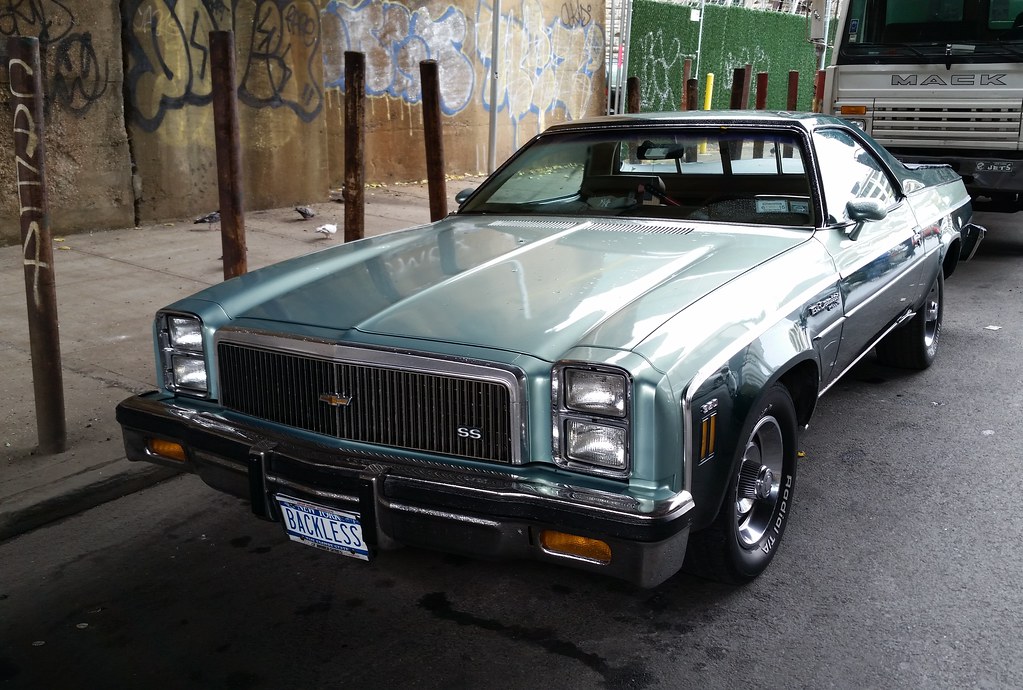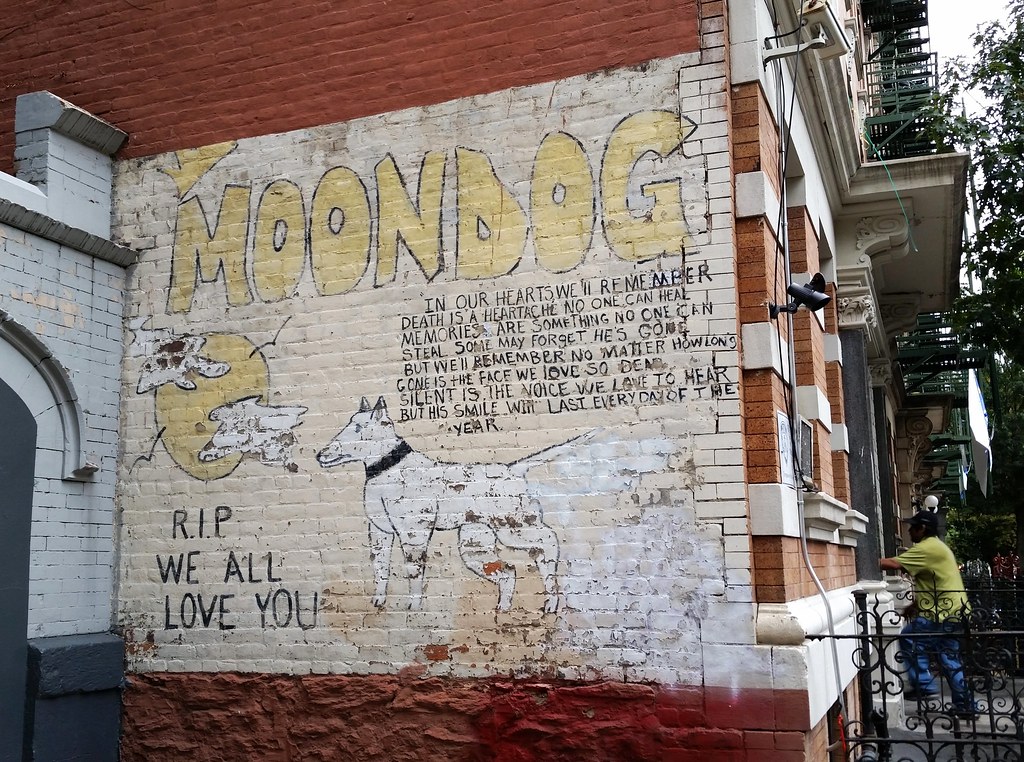

This recently uncovered wall advertising a long-gone pawnbroker also features the remnants of some poster ads that were put up around 1965, presumably just before the wall was covered over.

Not to be confused with The Famous Jimbo's Hamburger Palace.
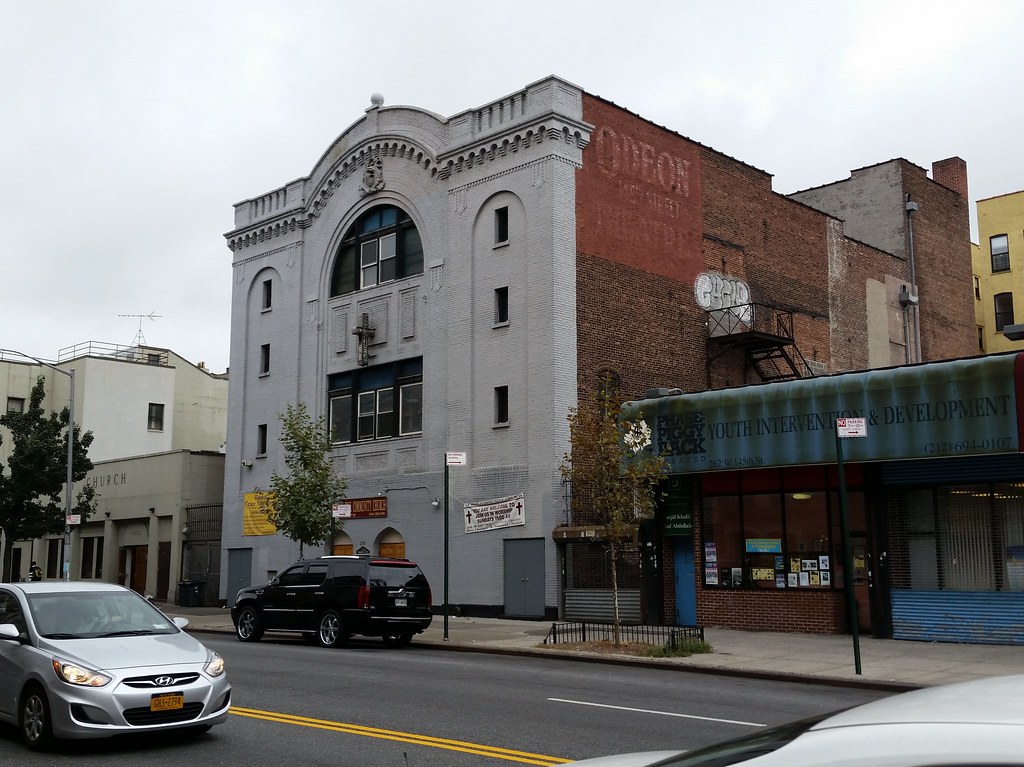
Formerly the Odeon Theatre (old sketch of the building here)
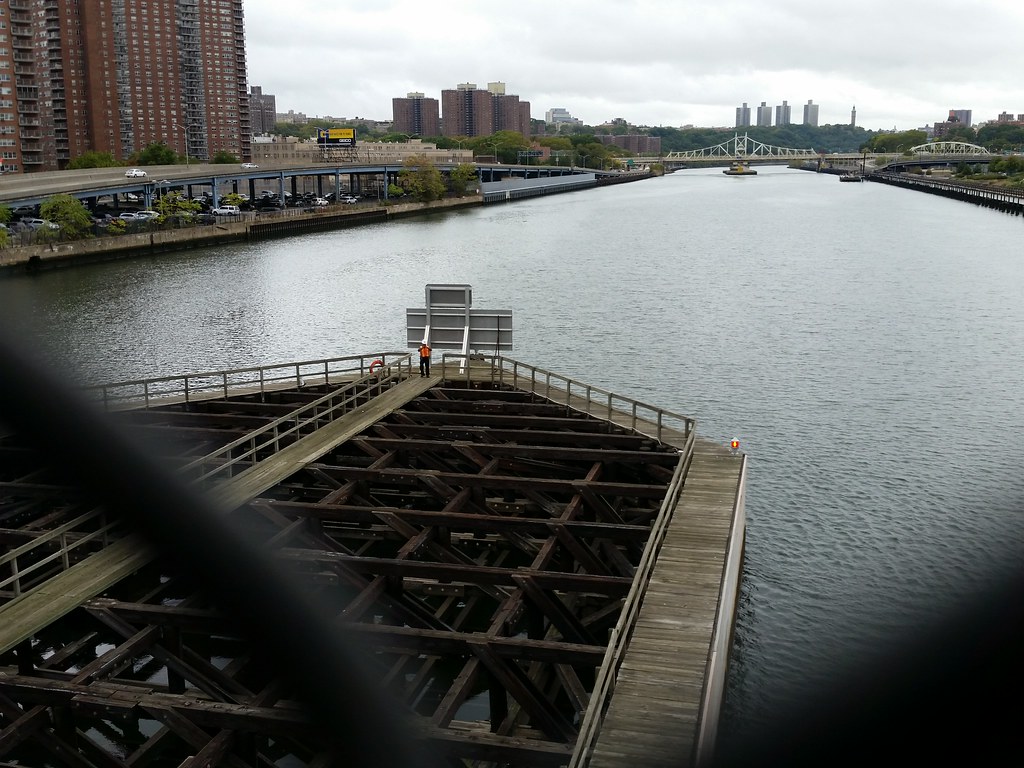
from the 145th Street Bridge over the Harlem River toward the Macombs Dam Bridge, the Four Sisters, and the High Bridge Water Tower. The wooden structure below, running parallel to the river, lines up with the center span of the bridge when the bridge rotates open to let river traffic through. This sort of feature is common to swing bridges; according to Wikipedia, it protects the center span from being struck by a passing ship while in the open position. It seems like it would also allow for easy access to the underside of the span for repair work. (That's a worker in an orange safety vest snapping a photo near the end of the structure.)
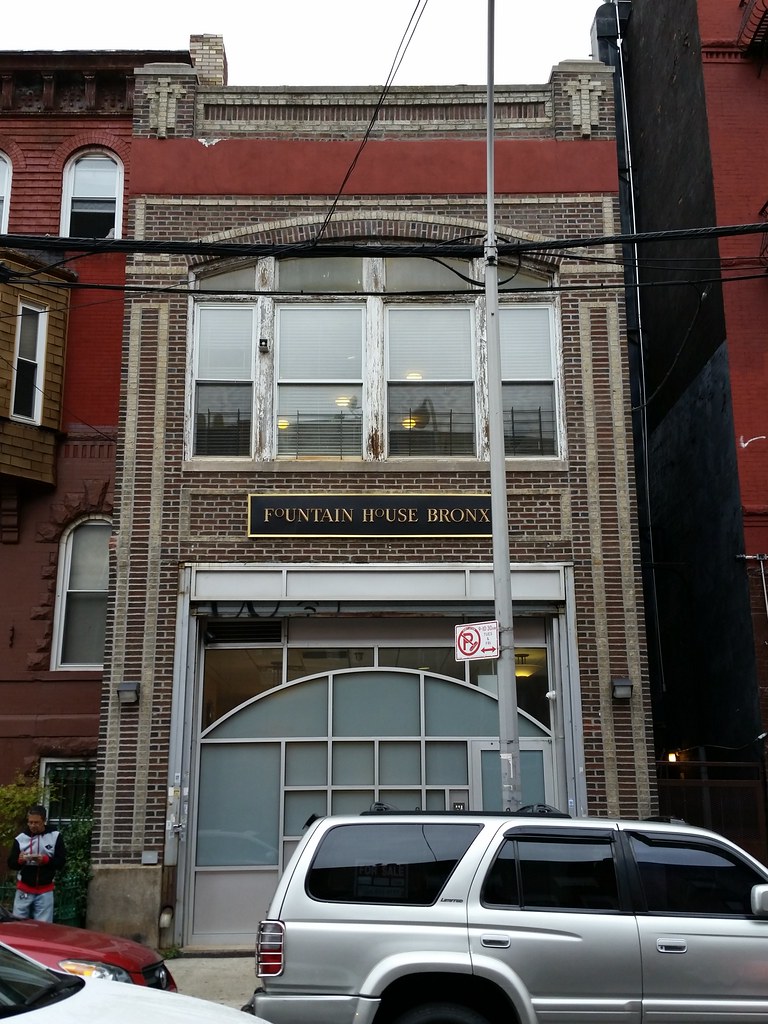
A new Bronx outpost of the mental health organization that pioneered the clubhouse model of psychiatric rehabilitation
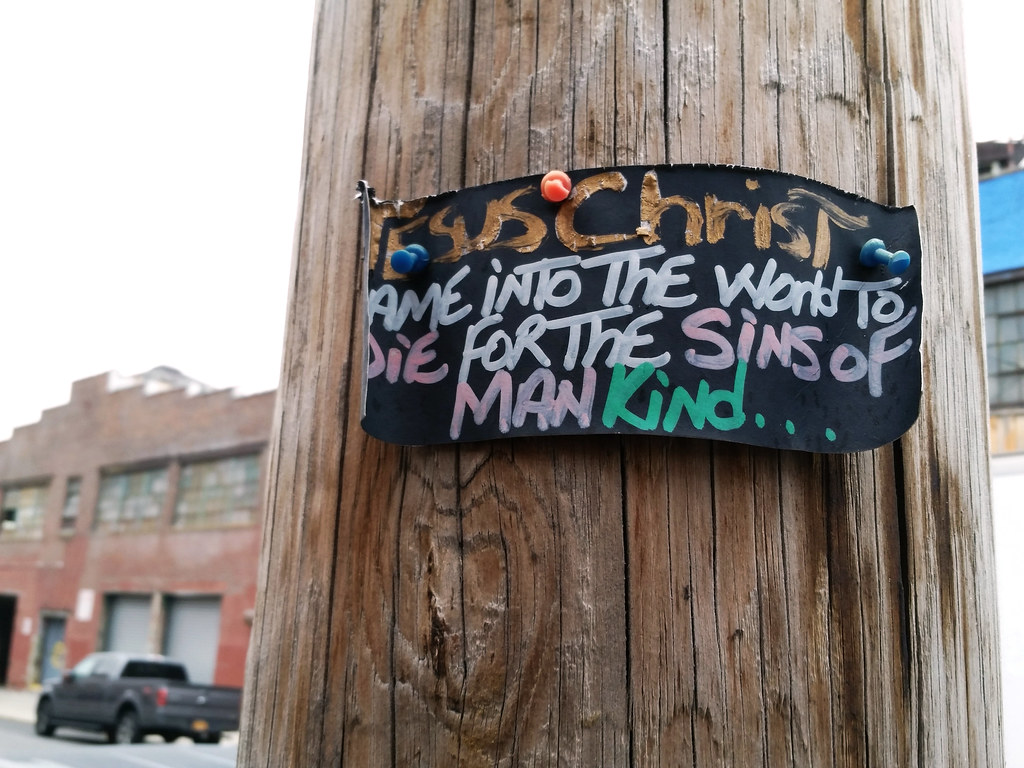
that there are hundreds of these homemade signs posted all over much of the Bronx (and Harlem too). Given how little of those areas I have left to walk, this could potentially be the last one I see, although I'll probably come across more when I do my final day in the southern Bronx, in the Clason Point area.
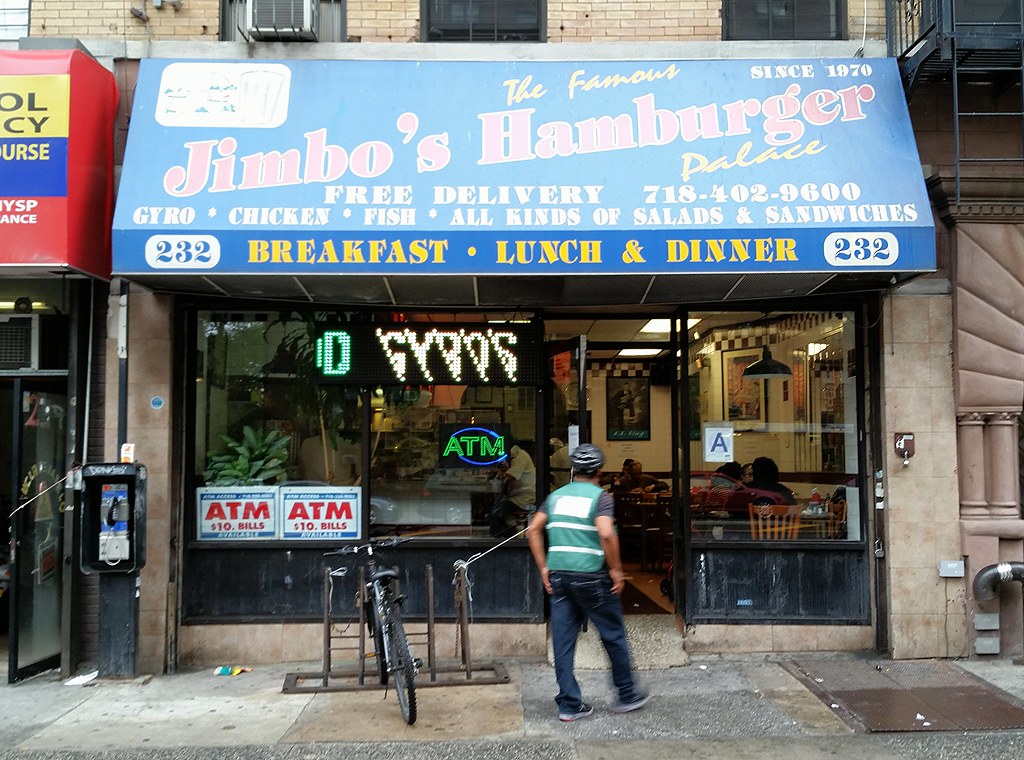
Compare to The Original Jumbo Hamburgers Palace. The similarities are striking. With a dozen or more restaurants in Upper Manhattan and the Bronx, Jimbo's is by far the more prolific of the two mini-chains; as far as I can tell, Jumbo has only two locations, both in Harlem. But Jumbo seems to be the original, both in name (Original vs. Famous) and date (1968 vs. 1970). There's also a "famous" Jimbo's Hamburger Place in Midtown East that supposedly has been around since the 1950s but bears no visual resemblance to the two Palaces in question.
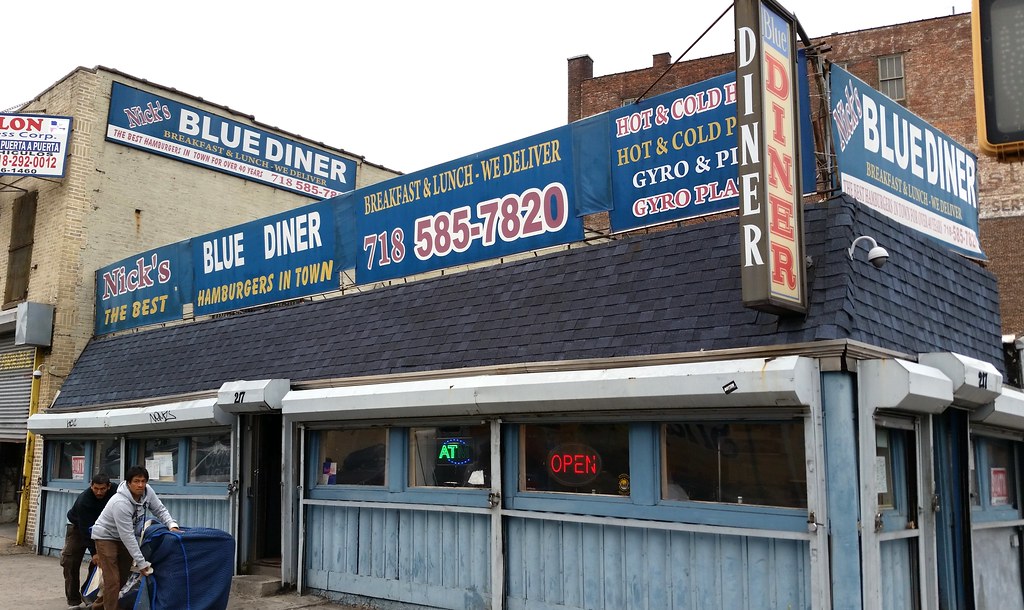
At "over 40 years" old, Nick's would seem to have been established around the same time as the burger palaces of Jumbo and Jimbo. But its signage, which bears some noticeable similarities to that of the other two places, is relatively new; it had a more spartan look back in 2007. Are the similarities just a coincidence, or is Nick ripping off the style of his patty-flipping rivals?
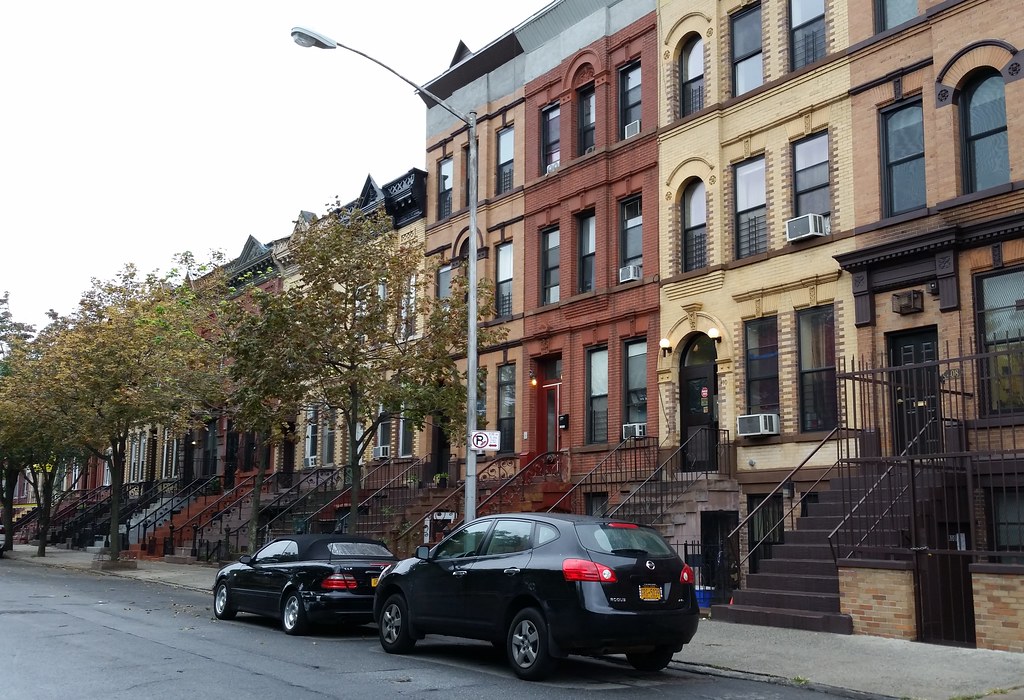
Handsome dwellings across the street from the Major Deegan Expressway

Painted on the side of the Engine 83/Ladder 29 firehouse (the former home of Kerry the Fire-Engine Dog). Here's an unobstructed view of the mural.

This is one of the two hot dog factories, both in the Bronx, operated by Marathon Enterprises, the company that makes New York's ubiquitous Sabrett hot dogs, as well as (at least as of 2005) the essentially identical ones served at Katz's Deli, Gray's Papaya, and Papaya King. At one point, Marathon was even the manufacturer of Nathan's Famous.
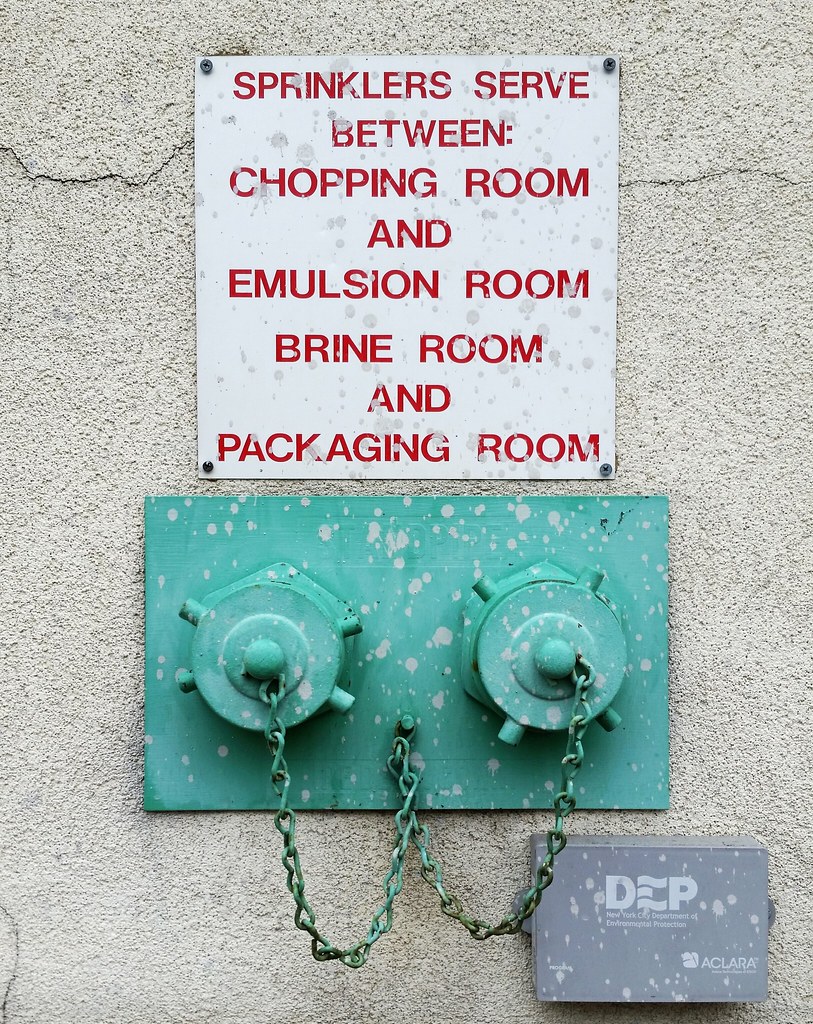
to make a hot dog.
On a somewhat related note, the Wikipedia article on hot dogs once began with one of the world's greatest sentences: "A hot dog (also known as a frankfurter, frank, wiener, or weenie) is a moist sausage of soft, even texture and flavor, often made from advanced meat recovery or meat slurry."
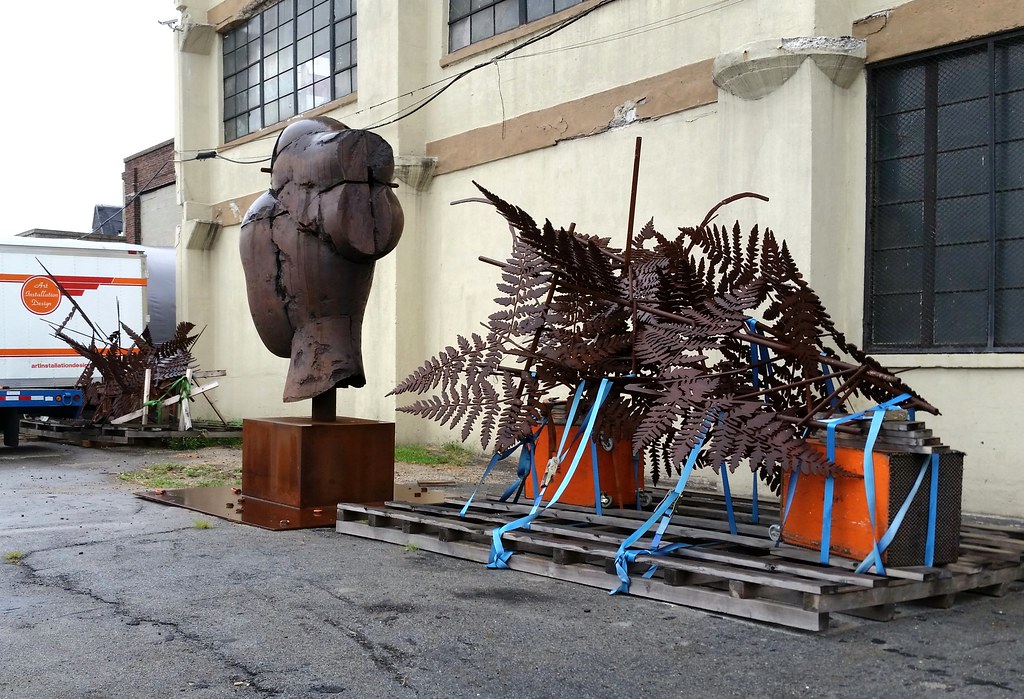
It's Guiomar from the Manolo Valdés: Monumental Sculpture exhibition we saw at the New York Botanical Garden.

A simple, elegant solution to the problem of people sitting on your building's sprinkler/standpipe connections

A while back, I posted a photo of the Siamese sprinkler connection at left, focusing on the improvised metal cage attached to it: "It's not one of the more vicious anti-butt devices I've seen, but at least it's trying harder than this one."
It somehow didn't occur to me at the time that this connection is located way too high on the wall for any reasonably sized person to sit on without leaping. Does this mean the little cage has some other purpose that's beyond my imagination, or is it just the result of a paranoid property owner's overzealous crusade against loiterers? For what it's worth, I saw several other anti-sitting fixtures on sprinkler/standpipe connections today; most were at comfortable lounging heights, but one other was also located up above butt level.

A 2005 NY Times article about the explosion of a hot-water tank at this laundry plant said that the workers here "wash roughly 30,000 pounds of linens and uniforms for several Manhattan hotels every day".
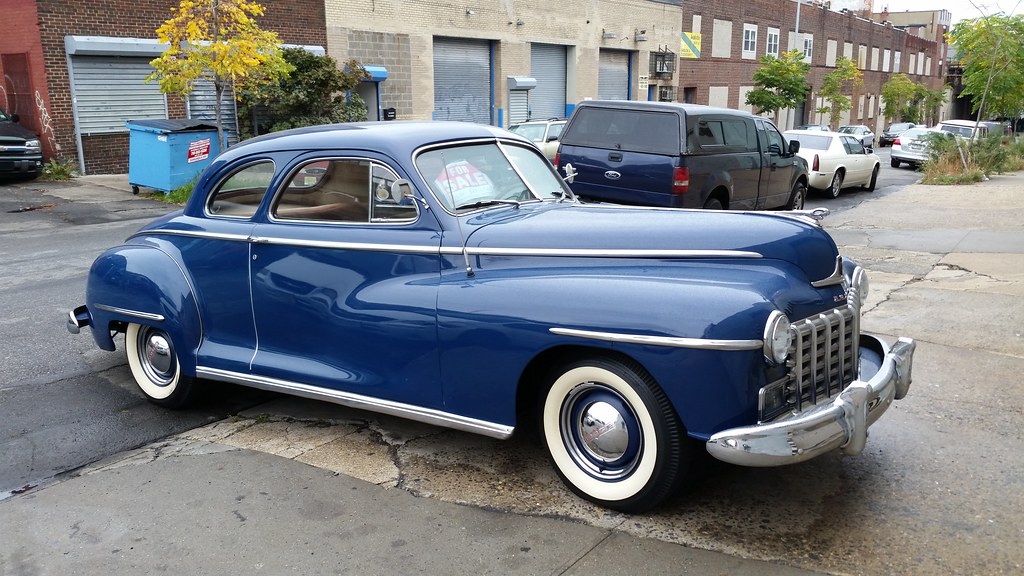
Civilian auto manufacturing in the US was halted during World War II as the nation's automakers devoted themselves to building vehicles and weapons for the military. When civilian production resumed in 1945, Chrysler "did what most Detroit manufacturers did right after the war: It simply reissued its [1942 models] with mild face-lifts", and then it continued building those same models largely without change until early 1949.

Captain Charles A. Mastandrea of the FDNY was awarded the Columbia Association Medal for his valor in rescuing a man from the third floor of this burning building in 2010.
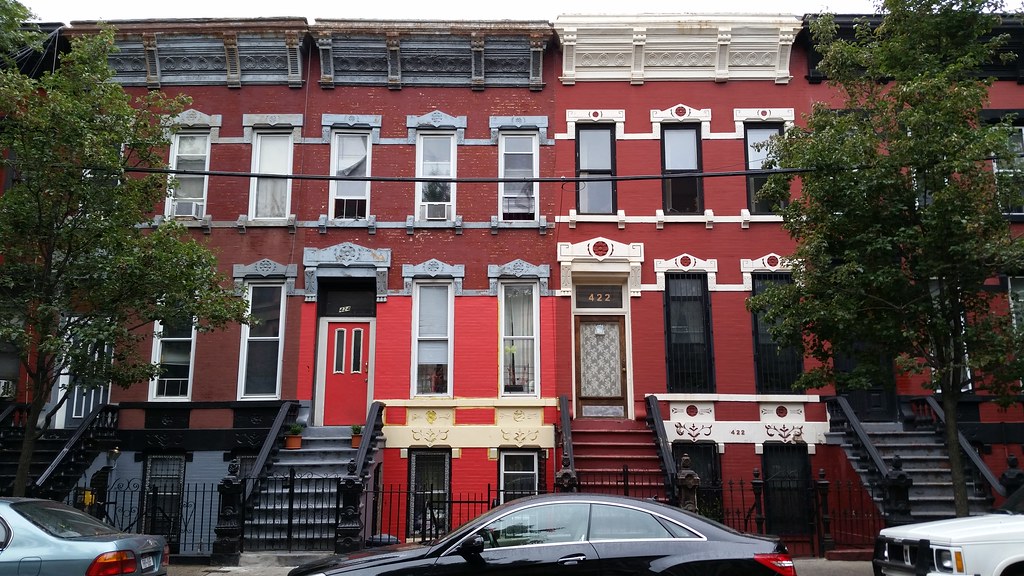
These houses on the south side of East 140th Street were built in 1889 and are part of the Mott Haven East Historic District. From the Landmarks Preservation Commission's designation report for the district:
Though common in Manhattan and Brooklyn, rowhouses from the nineteenth century are relatively rare in the Bronx.
Within the area of the district are three groups of single-family rowhouses . . . and two groups of tenements. Erected between 1889 and 1903, these buildings serve as a virtual catalogue of speculatively-built housing types common to the South Bronx building boom of the 1880s and '90s.
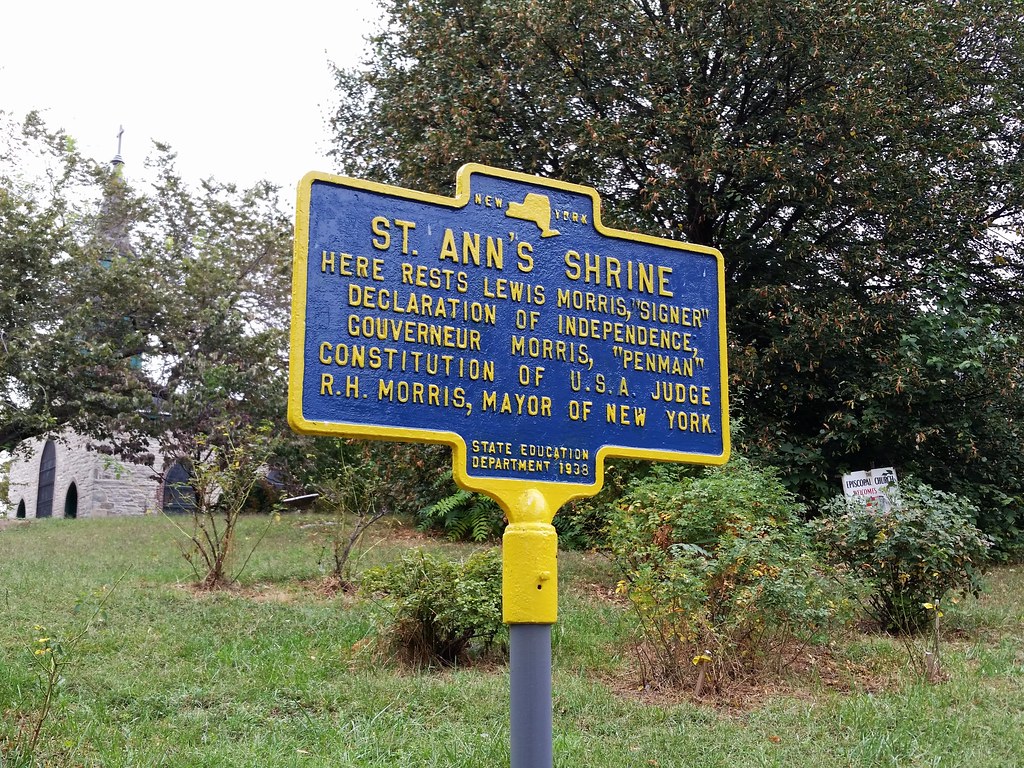
This sign has been brought back to life since we first saw it many moons ago.
St. Ann's Church (photos), completed in 1841, is the oldest surviving church building in the Bronx. Among those laid to rest here is Gouverneur Morris, the "Penman of the Constitution", who died after attempting to clear his blocked urinary tract by sticking a piece of whalebone up his urethra.
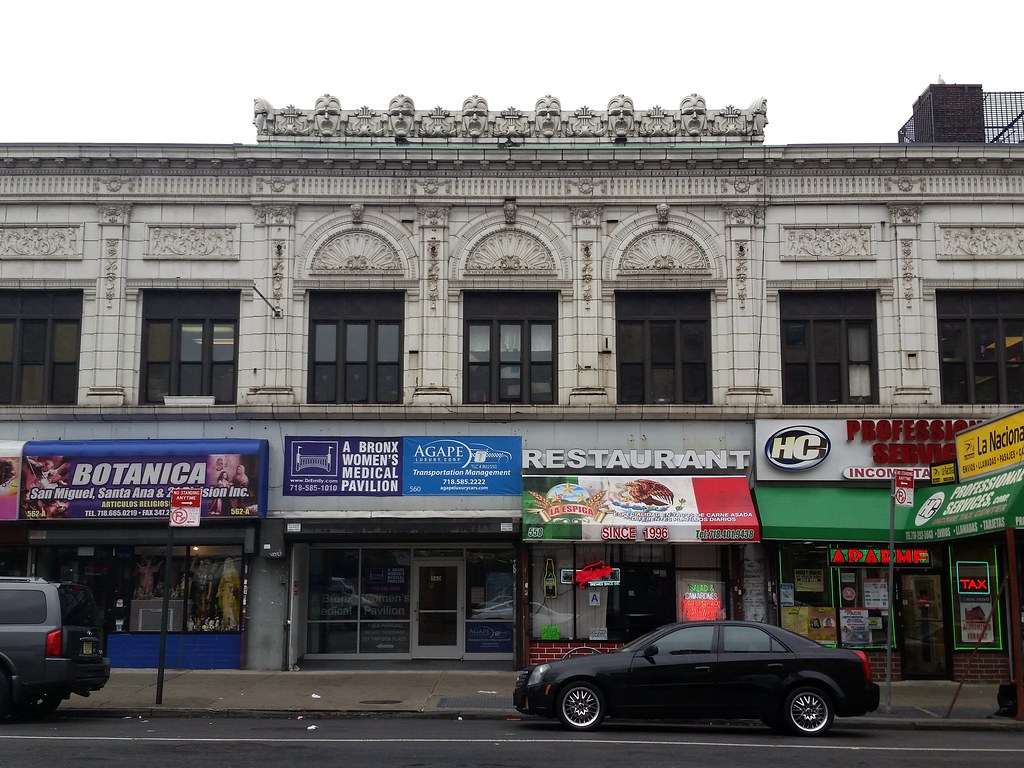
atop the old Congress Theatre, later known as the Ace Theatre

